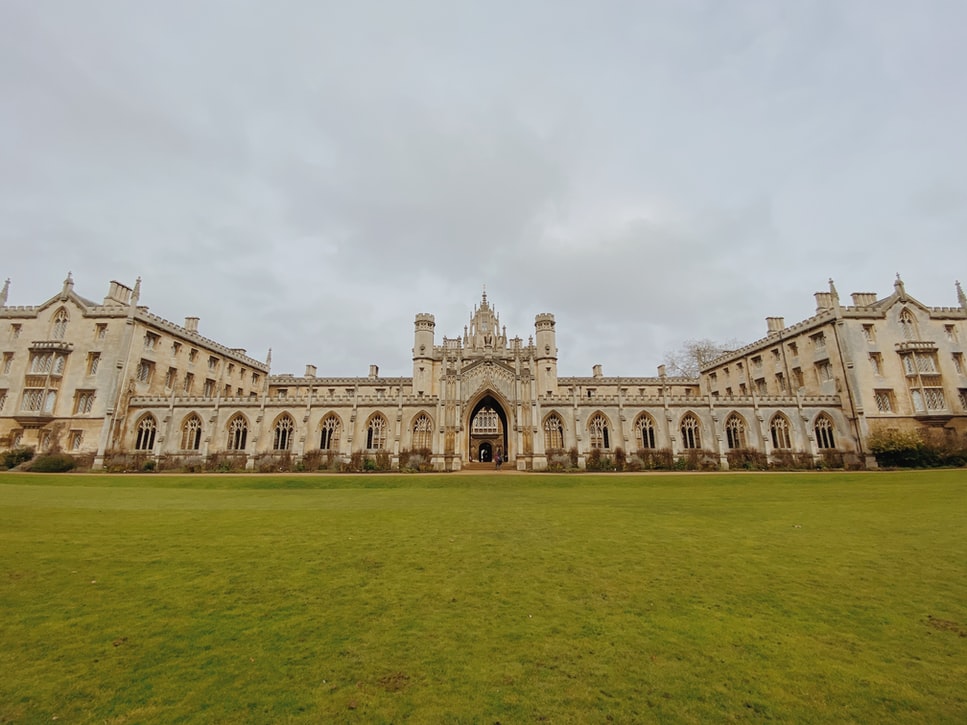Description: Josh has a degree in History and Social Policy from the Unversity of Cambridge. Here is a snippet of his experience with the Cambridge admissions process for Humanities.
I remember the whole day like it was yesterday. Being dropped off at my town’s small train station at 7am. Asking the conductor in a shaky voice for a ticket to Cambridge. Getting off the train, walking into town, taking a wrong turning (no Google Maps to help me) and snaking back through Cambridge’s medieval streets to find the way to Jesus College.
And most of all: tentatively offering up the word “Hope?” in response to the question: ‘What do you think Paris would have smelt like in 1789?’ – before shrinking back into my chair, my face reddening at the realisation of the ludicrousness of what I had just said.
Many people talk about their driving test as the most nerve-racking day of their life. For me, there is no competition – driving around for 45 minutes was a breeze compared to being interviewed for a place at Cambridge.
Yet that day was also exhilarating, a glimpse into a world of intellectual enquiry I so desperately wanted to be a part of. And now, as the years since that day pass, the memory remains a fresh but fond one.
Because, for all the nerves, it was a day spent discussing the subject I love, History, with experts in their field. If you are preparing for an interview at Cambridge or any other university, this is the most valuable thing to remember. It is a fantastic, if challenging, opportunity which very few people get to experience. If you embrace it as such your chances of success will be much higher.
That said, there are certain things that can be done to increase those chances even more. Here are four top tips to enable you to quell your nerves and embrace the opportunity.

- Prepare, but do not over-prepare. When you receive your invitation to interview, it can be tempting to spend every free moment preparing for the big day. It is important, however, to remind yourself what is and is not possible to prepare. You do need to be well-versed in your school topics and the things you mentioned in your personal statement.
However, it is not enough to know facts and details you can rehearse. Interviewers will be looking for your opinion, so read beyond the school curriculum, and jot down your own thoughts about topics or debates.
But remember, it is impossible for you to learn all there is to know about your given subject – so don’t try! In any case, interviewers want to know how you think, not what you know. They will test your ability to think on the spot. So, do not rehearse prepared answers for questions you think you might get. Instead, spend your time practicing answering questions spontaneously, with a friend, teacher, or parent/guardian. This will improve your confidence and calmness under pressure. - Focus on yourself throughout the day, not on other candidates. When you arrive, there will be many other candidates there going through the same experience. If you are a sociable person, it can be fun and relaxing to chat with other candidates, if you feel like it.
But avoid comparing yourself to others or discussing your interview or theirs – this will only make you more nervous! If you have a long wait between interviews, do not feel pressure to sit and chat: go for a walk around town, find a nice café to have a coffee in, or go read a book in the park, whatever helps you to relax.
Also, wear whatever you feel comfortable in. Cambridge dons are not going to be fooled by a nice suit, and if you are comfortable in what you are wearing, this will express itself as confidence and assuredness. - Take time to consider your answers and be concise. An interview is not a race. Pausing to think before answering a question is perfectly acceptable. Moreover, you should aim for your answers to be succinct and to always remain relevant to the question.
The aim is not to show the interviewer everything you know about a single topic, but to demonstrate that you are analytical, and can answer a question using precise and selected examples. Waffling on about something that isn’t relevant will harm, not help, your chances. - Do not be afraid to ask questions in return. It can be particularly unsettling when you are asked a question you don’t understand. “What do they mean, ‘postmodernist’?” “But I’ve never heard of Michel Foucault…” In this situation, do not attempt to improvise an answer – ask for an explanation!
This will not show weakness, but rather evidence of an enquiring mind and a sense of humility. The interviewers are experts in their field, and they do not expect a Sixth Former to know everything. Creating a back-and-forth dialogue will also help the interview feel more natural and informal.
I hope these tips prove useful and I wish you the best of luck with admissions.
Interested in working with Josh? Contact us today.

